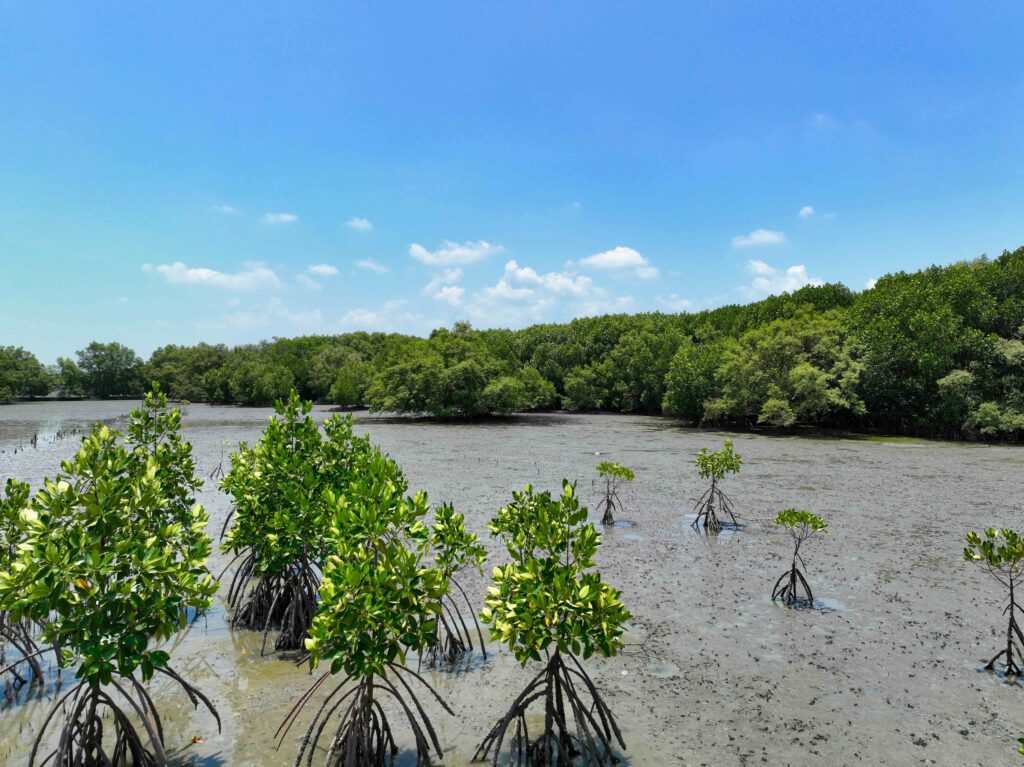Morocco’s Ministry of Economy and Finance launches new study – alongside FSD Africa – exploring financing options for small and medium sized enterprises in Morocco’s burgeoning Green Economy
- Morocco’s small and medium-sized enterprises (SMEs) businesses represent 93% of all companies in the country and employ over 46% of its workforce which generate only 40% of the nation’s gross domestic product (GDP) and 31% of its exports.
- SMEs are expected to play an important role in delivering Morocco’s Nationally Determined Contributions (mitigation and adaptation will require USD 38.8 billion and USD 40 billion, respectively), with around 40% of the mitigation actions and 55% of the adaptation actions to be implemented by SMEs either directly or through subcontracting to large enterprises (LEs).
Flagship research provides estimates of Morocco’s substantial green economic opportunity – as well as its alignment with the country’s efforts to address Nationally Determined Contributions – and explores the provision of green finance to SMEs so critical to the sector’s growth.
Rabat, 23 May, 2023 – Morocco’s Ministry of Economy and Finance (MEF), alongside partners at FSD Africa and at the British Embassy in Morocco (Foreign Commonwealth Development Office), has commissioned a study that surveys the accessibility and diversity of financial assistance available to SMEs and MSMEs in Morocco, and the capacity of these businesses (which represent 93% of all companies int eh country, and employ 46% of its workforce) to accelerate Morocco’s transition to the green economy.
The provision of green financing has risen to prominence in the Kingdom, with several offers emerging in the last few years to support green projects. From public institutions mandated to support Moroccan business, to regional and continental development finance institutions and local commercial banks, there is an increasingly sophisticated eco-system of players able to – via debt, equity and grants – stimulate the growth of small, innovative Moroccan enterprises. The growing demand for green finance instruments creates a residual financing gap that needs to be addressed by innovative financing schemes.
The study concludes that the country’s commitment to sustainable finance growth will require coordinated effort from various stakeholders. Following the publication of this study, FSD Africa will outline the design and implementation of a new financial instrument that will increase the availability and accessibility of green financing for Morocco’s SMEs. In line with the updated Moroccan Nationally Determined Contributions (NDCs), SMEs are expected to play an important role in delivering Morocco’s Nationally Determined Contributions (NDCs), with around 40% of the mitigation actions (USD 15.5 billion) and 55% of the adaptation actions (USD 22 billion) to be implemented by SMEs either directly or through subcontracting to large enterprises (LEs).
Commenting on the project, Madam Minister of Economy and Finance, Ms. Nadia Fatah, added: “We are delighted to note the relevance of this study covering an analysis of supply gaps and needs of green financing targeting SMEs for the design a new instrument that could respond to the unmet demand of SMEs in terms of green financing. Indeed, this work comes at the right time to support the efforts undertaken to implement the Kingdom’s strategic orientation aimed at making sustainability a pillar of development. In this regard, we would like to acknowledge the support of British cooperation in carrying out this study.”
UK Ambassador to Morocco, Simon Martin noted: “In March 2023 the United Kingdom published its updated Green Finance Strategy. It emphasises the growth opportunity the transition to net zero represents for businesses, SMEs in particular, and the need for dedicated support to back them up. It further highlights how FSD Africa’s work in Morocco is already helping to stimulate capital flows in support of green economic growth. I am delighted that with this new study, we are able to take the next step in supporting Morocco’s flourishing green economy and expand our bilateral financial cooperation further.”
FSD Africa CEO, Mark Napier, added: ‘’Morocco’s potential as a green economy is extremely promising, but it’s critical that the country’s economic backbone – small and medium sized businesses – is encouraged and supported in their efforts to engage in green projects and activities. Only by devising a system of green financing can the Kingdom’s green aspirations be achieved. This study constitutes an important and timely intervention which, we hope, will stimulate discussion among policymakers, legislators, private capital, and other stakeholders.”
Emerging from the GAP analysis was a clear picture of areas requiring action within the green finance space. Certain key industries – such as construction, transport, electricity production – have a high greening potential but are underserved by green lines of credit, whereas areas such as agriculture are well catered for. Moreover, the study concludes that key sectors such as fishing and sustainable housing remain virtually untouched by green finance offerings and must be addressed. Finally, the research points to a lack of key instruments such as green insurance and guarantee products, or equity funds exclusively designed for green activities.
The study makes a series of recommendations, in areas ranging from public awareness to regulation and tax, technical assistance and technology, among others.



